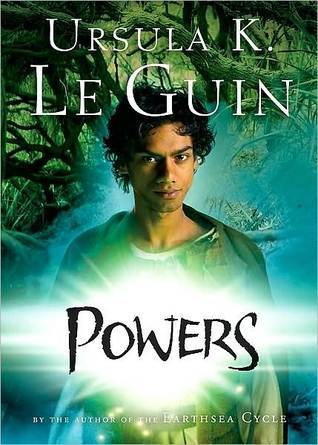More on this book
Community
Kindle Notes & Highlights
Read between
February 22 - March 2, 2018
Writing about our life in the House of Arcamand in the City State of Etra, I fall back into it and see it as I saw it then, from inside and from below, with nothing to compare it to, and as if it were the only way things could possibly be. Children see the world that way. So do most slaves. Freedom is largely a matter of seeing that there are alternatives.
By that standard, leadership means personal magnetism, active intelligence, unquestioning acceptance of responsibility, and something harder to define: a tension between justice and compassion, which is never satisfied by one without the other, and so can seldom be wholly satisfied.
Perhaps men rely on war, like politics, to give them a sense of importance they lack without it; and the possibility of violence and destruction sheds a glamour on the household life which they otherwise hold in contempt. Women, I think, not needing the self-importance and not sharing the contempt, often fail to understand the virtue and necessity of warfare; but they may be caught in the glamour, and they love the beauty of courage.
"Noble words to teach you how to be unhappy. Such poets refuse the gifts of the Ancestors. Their work is a bottomless pit. Once you remove the firm foundation of belief on which all our lives are built, there is nothing. Only words! Gorgeous, empty words. You can't live on words, Gavir. Only belief gives life and peace. All morality is founded upon belief."
But I had those few years of learning, and hearing truly wise men talk, and knowing that there's a life of the mind that's far above anything else in the world. And so I knew what was missing here. I could make my city of free men, but what's the good of freedom to the ignorant? What's freedom itself but the power of the mind to learn what it needs and think what it likes? Ah, even if your body's chained, if you have the thoughts of the philosophers and the words of the poets in your head, you can be free of your chains, and walk among the great!"
I had believed that justice could exist in a society founded on injustice. Belief in the lie is the life of the lie. That line from Caspro's book came back to me, and cut like a razor. Honor can exist anywhere, love can exist anywhere, but justice can exist only among people who found their relationships upon it.
It wasn't easy for me to ask them about Ferusi, not that they didn't know all about it or didn't want to talk about it, but because it was their entire universe and was therefore taken for granted. They could not understand the kind of questions I asked. How could anybody not know the name of the lake? Why would anybody ask why men and women lived separately—surely no one could think they should live shamelessly in the same village, the same house? How could anybody possibly be ignorant of the evening worship or the words to say when giving or receiving food? How could a man not know how to
...more
"It may be that I didn't know it," I said, a fairly common phrase among the Marsh people, who avoid direct negatives and unnecessary commitments.
Three things that, seeking increase, strengthen soul: love, learning, liberty.'"
You give me the gift only the reader can give the writer.


